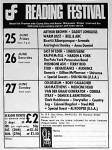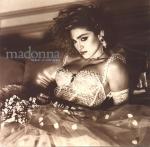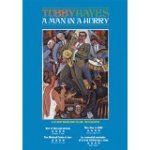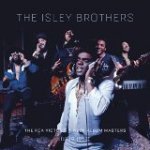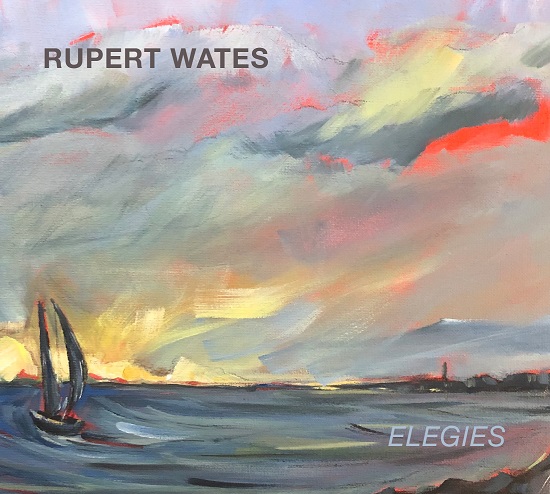
Bear with me while I get the nostalgia bit out of the way. There was a time in the 1970s when singer-songwriters from the folk world could become massive, making singles and albums that charted and selling out 2,000 capacity venues armed with only an acoustic guitar (usually a Gibson or a Martin at that time). It wasn’t just the odd one or two either; there was strength in depth as well. We had Ralph McTell, John Martyn and Richard Thompson (among others) in the UK and North American continent had Gordon Lightfoot, James Taylor and Neil Young (when he wasn’t squeezing squalls of feedback out of Old Black. Rupert Wates would have fitted in perfectly with his virtuoso finger-style guitar and mix of traditional and modern lyrical themes. Skip forward five decades and folk music’s a minority interest again. Which is why I have such a great admiration for artists like Rupert Wates. He does what he does in the knowledge that it’s a labour of love and that’s pretty common in certain areas of today’s music business.
The eleven songs on ‘Elegies’ are love songs but, as the title implies, they all convey a sense of loss as well. The musical stylings reflect the lyrical content of the songs; the more traditional folk-style lyrics tend to have fairly conventional guitar stylings while the contemporary lyrics lean towards a jazz feel, particularly when Trifon Dimitrov joins the party on double bass. Of the traditional lyrical songs, ‘Guinevere’ is based on ‘Malory’s ‘Morte d’ Arthur’ with hints of the Robin Hood legend, ‘Lady of the Glades’ is based on Keats’ ‘La Belle Dame Sans Merci’ and ‘Across the Water’ derives from Tennyson’s ‘Lady of Shalott’. ‘The Storm’, with its high-register vocal, is inspired by Poe and Coleridge and builds and darkens musically to reflect the ominous oncoming weather. ‘The Man Who Worked in Clay and Stone’ has a more modern feel and arrangement underpinning a message that you should be careful what you wish for because ultimate beauty is ultimately sterile.
Of the more modern lyrics, ‘Cathy’ is a love song with a smoky jazz club feel enhanced by the double bass, and ‘We’ll Go Dancing’ is a love song set in Paris that also hints at the speakeasy era of the 1930s in the States. It’s a mark of Rupert Wates’ craft that he’s able to create such a variety of moods with one or two guitars, occasional double bass and vocal.
‘Elegies’ is Rupert Wates’ twelfth album and it demonstrates perfectly why he’s an award-winning songwriter and performer. He’s a genuine virtuoso acoustic guitar player who plays with the kind of subtlety that you won’t be hearing on mainstream radio any time soon. If you’re in the UK and you want to see and hear him play, he has one UK date at The Cabbage Patch in Twickenham on Sunday October 1st.
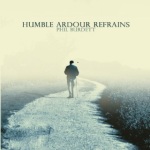 A long time ago, I really struggled with the musical concept that the most important thing wasn’t the notes, but the space between the notes. I was a bit literal and musically unsophisticated at that time, but I managed to get my head around the idea before it got me into any arguments. The reason I’m inviting you to have a laugh at my expense here is that Phil Burdett’s album “Humble Ardour Refrains” has some wonderful examples of using the space between the notes to create atmosphere and emotion. This is one of two albums that Phil’s releasing simultaneously on Drumfire Records (you can read about “Shaky Path to Arcadia” here) and if you take the two albums together, it’s an extraordinary achievement.
A long time ago, I really struggled with the musical concept that the most important thing wasn’t the notes, but the space between the notes. I was a bit literal and musically unsophisticated at that time, but I managed to get my head around the idea before it got me into any arguments. The reason I’m inviting you to have a laugh at my expense here is that Phil Burdett’s album “Humble Ardour Refrains” has some wonderful examples of using the space between the notes to create atmosphere and emotion. This is one of two albums that Phil’s releasing simultaneously on Drumfire Records (you can read about “Shaky Path to Arcadia” here) and if you take the two albums together, it’s an extraordinary achievement.
He’s used the same musicians (with the addition of flute and sax on this album from Paula Borrell) to produce two very different albums; musically, “Humble Ardour Refrains” has a more acoustic, folky vibe and there’s a much more confessional, intimate feel to the autobiographical material. I’m sure that everyone listening to this will pick out different songs that they love, but my instant favourite was “A Kind of Chalkwell Station Blue”; Russ Strothard’s melodic bass line works perfectly with John Bennett’s clipped guitar and Jack Corder’s congas to create a backing that rolls along seemingly effortlessly under Phil’s sub-apocalyptic vision of Southend and Canvey. When you add Paula Borrell’s meandering flute, the result is sublime. It’s a song that took me back to John Martyn at this very best.
If we’re talking comparisons (and we are), Tom Waits would be proud of the lo-fi stomp of “Jackleg Preacher” with its ‘ruffian choir’ and yuppie-vilifying lyrics; the band can do subtle, but they can also crank it up like a bar band. I should really mention “Chickenwire” as well; I can’t think of any other songwriter who can write a love song (unusual in itself for Phil) that includes the lines ‘This sick life worships morning tide & Satan’s sleeping on the shore, He’ll leave his bitter truths behind – callous, cruel & raw’.
As always, the metaphors range far and wide, from The Bible to French literature with musical references from Dexys to Dylan and Songdog dropped into the mix as well. “Humble Ardour Refrains” is a very personal album exploring childhood and lost innocence, London, absent friends (“Likes of Us”), some very dark times and the mental and physical place that Phil finds himself in at the moment.
Even if you ignore the simultaneous release of “Shaky Path to Arcadia”, this is an astonishingly good album from an artist who really should be much better known than he is. I can’t even choose between the two albums; you should just give yourself a treat and buy both.
“Humble Ardour Refrains” and “Shaky Path to Arcadia” are both out on January 29 on Drumfire Records.
We haven’t heard too much from our very own Grinch this year; I suppose that means the restraining order worked. Unfortunately, he’s just reminded us that we have a contractual obligation to publish his annual High Five contribution. Feel free to read this, but please bear in mind that it contains bad attitude from the outset.
Why does every performer these days want to use a loop pedal? It was a challenge in the seventies when John Martyn and Brian May used WEM Copicats with real tape loops (well, where did you think the name came from?) to beef up their guitar noodlings. It was proper difficult then because you never knew when the tape would wear out or jam. Then KT Tunstall went on “Later” and suddenly every cheapskate player and singer wants to ditch the rhythm section and everyone sounds like everyone else. It’s a nice gimmick but it’s not a substitute for real players. Just leave the looper at home; it’s not big and it’s not clever.
What’s going on with festivals now? When I was a lad, you only had Reading (Jazz and Blues) Festival to contend with; Glastonbury was just a couple of hundred comatose stoners looking for ley lines and T in the Park wasn’t even in the horizon for Stuart Clumpas. Festivals only happened in the British summer month(s) and featured bands that everyone knew. And now there are mainstream festivals, corporate festivals, boutique festivals and bonkers local festivals with tribute bands, has-beens and newcomers. But watch your step; if you buy a ticket for a festival, buy it with a credit card, because there’s a pretty good chance it won’t actually happen – your choice.
I know, it’s a shocker; Madonna has a diva strop. Who would have predicted that? Ms Ciccone gets on stage just under an hour late in Manchester and what does she do? Well, most of us would apologise, wouldn’t we, but not Madonna Veronica Louise. No she rips into the booing audience and calls them diva bitches. There’s a lesson to learn here; if you have all of your light show (and your backup vocals and Autotune settings) stored electronically, then back the fecking things up, and not just once. Don’t use data loss as an excuse, because it’s no excuse, especially if you offer it up two days later. We all screw up; apologise and get over it. Your audience are paying your wages; never, ever forget that.
Well, we were all blown away by the stupendous Tidal launch this year, weren’t we? A motley bunch of rich musicians (and isn’t that Ms Ciccone again?) investing in a scheme to make themselves even more money, that’s just what we need isn’t it? The launch event looked like a failed PowerPoint training exercise, proving that musicians should stick to what they do best. It’s been pitched as an attempt to generate decent loyalties for writers, but it smells of elitism and the music-buying public have ignored it in their droves. If you still believe that music has any value, you can ignore streaming services completely and buy physical copies of your music.
So we’re all supposed to be streaming now and no-one wants to buy physical copies of music any more. Well it’s a bit confusing, but I’ll do my best to make it simple and use small words. CDs: apparently they’re on the way out at the same time as they’re on the way back in again. If you believe the insiders, CDs are about to become a premium product, for the second time as a medium for ultra-high quality sound, while vinyl sales (and record deck sales) are still on the rise in 2015. If the public are showing signs of paying to actually own musical artefacts, then I’m well chuffed, but my inner cynic starts to get twitchy when Tesco are selling vinyl again and ‘classic’ albums that were originally released on vinyl, then cassette, then CD, then online as MP3s and streamed versions are back to vinyl again. I’m just pleased I kept hold of all my old 8-tracks.
It’s time to get the High Fives under way for 2015 and, in a break with tradition, I’m handing over the opening slot to one of our guests, Neil Sheasby, bass player and co-songwriter with one of The Riot Squad’s favourite bands, Stone Foundation. The band have had a great year with the release of their superb album “A Life Unlimited” (guest vocal from Graham Parker, no less), a Japanese tour and some high profile UK gigs. Neil’s observations on music are always interesting, so it’s a pleasure to let him have the first High Five this year.
 KAMASI WASHINGTON – “THE EPIC”
KAMASI WASHINGTON – “THE EPIC”
A record that pretty much defined my summer, for a few weeks I didn’t play much else. It is actually one of those albums that the more you listen to it, the more it will give you in return. It’s quite a sprawling, challenging recording set over three discs and clocking in at around three hours so it’s hard to digest all in one sitting but its depth, beauty and sheer ambition is unlike any other album I have heard in recent times. It could easily sit alongside the jazz heavyweights such as Coltrane’s output for impulse & Atlantic. Probably more accessible though. It has a timeless quality to it and an underlying spiritual vibe, funky too. I was lucky enough to catch his recent London gig and the playing was just on another level, astonishing stuff. Inspiring. He also led me to Kendrick Lamar’s “To Pimp a Butterfly” album (Kamasi plays on it) which is a great modern hip hop record again pushing & re-defining the boundaries of that particular genre.
I think 2015 has been a strong year for new releases and new music in general, it’s been encouraging.I’ve really enjoyed new albums from artists I hadn’t previously heard of like Ryley Walker whose “Primrose Green” album evokes traces of John Martyn & Tim Buckley; also the Julia Holter record is an interesting listen but I must admit the real surprises of the year have lain with the rejuvenation of established arists that have made really unexpected returns to former glories. New Order’s “Music Complete” album was a real eye opener, easily their best since 1989’s Technique. It’s a real triumph; Peter Hook free too! They should be proud of such a complete piece of work after all these years, it was a bona fide pleasant surprise to my ears, I’d about written them off.
Also this year there’s been great new albums from Joe Jackson (“Fast Forward) and Squeeze (“Cradle to the Grave”) that are fit to stand alongside any of their previous highlights.
This is a film about the relatively short life of British Jazz genius Tubby Hayes. It was made by two good friends of mine, Mark Baxter & Lee Cogswell and it’s a fascinating profile and made with much affection for its subject, narrated by Martin Freeman and it includes commentary & interviews with Sir Peter Blake, Spike Wells, Robert Elms, Simon Spillett and Ed Piller amongst others. I’ve known Mark for several years now and from day one he always had a burning desire to create a fitting documentary as a testament to Tubby’s life & music, he’s more than succeeded, I’m so pleased for him & Lee. It’s a fantastic little film and one that had me running for the records again.
Me and a mate recently attended the London launch party for its DVD release and on the train home it had us talking passionately about London & the Soho jazz scenes through the years, the clothes and the clubs, the DJ’s, bands, singers etc.That’s the tell-tale sign that “A Man in a Hurry” film had served its purpose all right.
Released earlier this year The RCA Victor and T-Neck albums all housed together in a 22 CD box set. It spans the Isleys career from 1959 up to 1983 taking in all those classic mid 70’s albums as well as a previously unreleased live album recorded at Bearsville Sound Studios. It’s an absolute beauty and really highlights the often overlooked genius of The Isley Brothers. Ronald, Ernie and Rudolph began with Doo-wop roots and evolved marvellously through classic Soul, Funk and even disco
It’s an incredible collection, once I get immersed in it, I’m in there for days on end. Brilliant stuff.
 YOU KNOW MY NAME: THE LOVERS, THE DREAMERS AND BOBBY SCOTT
YOU KNOW MY NAME: THE LOVERS, THE DREAMERS AND BOBBY SCOTT
A compelling & fascinating read by one of my favourite writers, Kevin Pearce. It’s actually the first book I have ever read from start to finish on my phone, it was my companion whilst on holiday this summer. Not many will be familiar with the name of Bobby Scott but it’s probably safe to say that you would have certainly heard his work.
Bobby composed, arranged, sang, produced and performed with countless artists including Marvin Gaye, Bobby Darin, Timi Yuro, Aretha Franklin, Chet Baker, Quincy Jones, Roland Kirk, Deodato, Stan Getz, Astrud Gilberto and a cast of thousands more. Bobby Scott songs include “A Taste of Honey”, recorded by the Beatles, and the epic “He ain’t Heavy, He’s my Brother” which The Hollies struck gold with (also check Donny Hathaway’s miraculous version) The only downer to reading this book is that it will seriously have you running back and forth to You Tube checking out song after song and of course in my case, being a hopeless music junkie, I ended up spending a small fortune on chasing up some of these spectacular sounds for my ever expanding collection.
I also read great autobiographies from Robert Wyatt, Bernard Sumner, Nile Rodgers, and somewhat refreshingly the Italian footballer Pirlo. I was a tad disappointed with the Grace Jones book, thought it would be more telling I think, then again Paul Morley was involved so no surprise I was underwhelmed.
I’m just about to begin Elvis Costello’s “Unfaithful music and Disappearing Ink”; looking forward to it…..
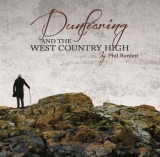 What a great start we’ve had to 2014. We’ve already reviewed some cracking albums in various genres and now we’ve got another. “Dunfearing and the West Country High” is Phil Burdett’s first album to be released on Twickenham-based Drumfire Records and it’s very, very good. If you’ve seen Phil Burdett play live, you’ll know that he has a powerful, rich baritone voice and is an accomplished acoustic guitar player. He learned to play at the age of six, was in a pre-Depeche Mode band with Martin Gore and has pursued a winding and sometimes messy path through the music scene in the south-east of England ever since.
What a great start we’ve had to 2014. We’ve already reviewed some cracking albums in various genres and now we’ve got another. “Dunfearing and the West Country High” is Phil Burdett’s first album to be released on Twickenham-based Drumfire Records and it’s very, very good. If you’ve seen Phil Burdett play live, you’ll know that he has a powerful, rich baritone voice and is an accomplished acoustic guitar player. He learned to play at the age of six, was in a pre-Depeche Mode band with Martin Gore and has pursued a winding and sometimes messy path through the music scene in the south-east of England ever since.
It’s obvious from the first listen that Phil isn’t just a songwriter; he’s a true poet. You can find any number of musical influences listed in previous reviews but you should probably add James Joyce and Dylan Thomas to that list. A quick word of advice here, don’t download this album, buy the CD; the packaging, designed by Fish Inton, is gorgeous and contains a booklet full of evocative photos and all of the lyrics.
It’s usually a pretty easy job to explain the subject of a song, but it can be a real challenge on “Dunfearing…” as Phil slips sinuously between the mundane and mystical. Even a song as seemingly grounded as “Small Talk at Sullivan’s Diner” descends quickly from the simple narrative to a deeper and darker examination of tortured souls struggling to cope with real life. The songs with a clear narrative thread are inspired by the history of Cornwall and the West Country, “Gothic Miner” and “Fate of Pirates”, for example, while “New York City Call” and “Columbus and Hope” emphasise the area’s historical links with the New World. There’s a batch of songs (“First and Last”, “Song of the Lamp”, “See the Sunset Slow and Beckon True”, “Rimbaud’s Ghost, Chapel Street & Union” and “Winter Halls”) which take inspiration from Phil’s recent Cornish sojourn, and the fatalistic “It’s Where ye Have to Go”.
Which leaves the album’s closing song, “Night Horses of the Wireless Road” to take all of these strands and pull them into an epic, mythical, stream of unconsciousness. The entire album is lyrically dense (both in volume and meanings) and the final song typifies this with references to art, music and fables, before moving abruptly into harsh reality with the news of the death of Jackie Leven, to whose memory the album is dedicated. Musically, “Night Horses…”, has echoes of Neil Young with Crazy Horse at their most laid back or maybe even John Martyn at his best. It has the same unsettling, alienating effect as The Afghan Whigs’ 1996 album, “Black Love”, particularly the closer, “Faded”.
I’m not saying this is an easy listen, but it’s worth putting in the effort. You might even have to do a bit of research on phrases like “mise-en-abyme” (you can look it up for yourself) and some of the more obscure references. Phil’s rough-hewn baritone voice and acoustic guitar (with a hint of Johnny Cash at times) are sympathetically supported by John Bennett (guitars), Steve Stott (mandolin/fiddle), Russ Strothard (bass guitar), Jack Corder (drums), Dee Hepburn (piano), Colleen McCarthy (backing vocals), Wag Porter (fiddle) and Mark Elliott (percussion) throughout the album; the playing isn’t particularly showy, but it creates a perfect backdrop for the modern folk and slight country leanings of the songs.
If you want a particularly geeky fact to impress your friends with, there are nearly thirty drinking references in the album’s lyrics, including pub names, drink names and general drinking terms, including one reference to rehab; you can take what you like from that, but I’m guessing that Phil enjoys a beer. This is an album which visits some very dark places, but closes with a heartfelt farewell to a fellow troubadour as part one of the proposed “Secular Mystic Trilogy” closes.
Out Monday March 3rd on Drumfire Records (DRMFR016).
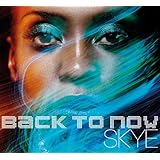 The second of our guest High Five contributions comes from Skye Edwards. Most of you probably know Skye best from her work with Morcheeba but she has also released three excellent solo albums since 2006 (“Mind How You Go”, “Keeping Secrets” and this year’s “Back to Now”). Skye went one better than the Riot Squad by selecting her favourite 5 albums of all-time and it’s fair to say that they are a cracking collection. For what it’s worth, I’ve added some observations and background.
The second of our guest High Five contributions comes from Skye Edwards. Most of you probably know Skye best from her work with Morcheeba but she has also released three excellent solo albums since 2006 (“Mind How You Go”, “Keeping Secrets” and this year’s “Back to Now”). Skye went one better than the Riot Squad by selecting her favourite 5 albums of all-time and it’s fair to say that they are a cracking collection. For what it’s worth, I’ve added some observations and background.
“Exodus” – Bob Marley & the Wailers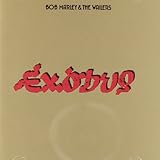
Although Bob Marley had attracted some attention with “Live!” in 1975, it was “Exodus” that catapulted him to international fame in 1977. The album demonstrates every aspect of Bob Marley’s appeal, from the mysticism of “Exodus” and “Natural Mystic” through the yearning of “Waiting in Vain” to the outrageously catchy “Three Little Birds”. I’ll say something here which refers to every album in Skye’s selection; if you’re even slightly interested in music, you should have all of these albums in your collection.
“Hats” – The Blue Nile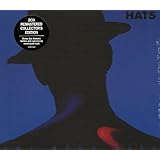
Although this was released at a time when anyone in Glasgow who looked good in 24” waist jeans and shades could get a record deal, The Blue Nile’s second album was a very special and highly influential album. When everyone else in Scotland played guitar-oriented pop, The Blue Nile concentrated on keyboards and samples to produce some ethereal innovative, and evocative music which still sounds great today. They weren’t a prolific band (4 albums in 21 years), but do you want quality or quantity?
“Solid Air” – John Martyn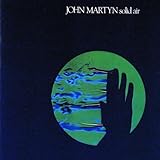
John Martyn was a true innovator and hugely gifted songwriter who really did do it his way. He developed a drawling, laconic vocal delivery and pioneered the use of effects pedals to thicken up his guitar sound (including building up layers of sound using analogue echo units). “Solid Air” was his sixth album and the point where everything came together to create a classic. It’s a tribute to John Martyn’s songwriting that, from this album, “May You Never” was covered by Eric Clapton (on “Slowhand”), “Man in the Station” was covered by Ian Matthews (on “Stealing Home”) and “Solid Air” has been covered by Skye (on the tribute album “Johnny Boy Would Love This”).
“Stronger Than Pride” – Sade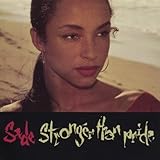
Sade Adu had one of the voices which defined the 80s; a great soul voice which seemed at times to be produced with absolutely no effort. The smoothness of the voice and the arrangements could distract from the genuine quality of the songs at times, but they were great songs. This album came towards the end of Sade’s time in the limelight but was undoubtedly the work of an artist at the top of her game and it’s worth having if only for “Love is Stronger than Pride”.
“The Singles” – Shirley Bassey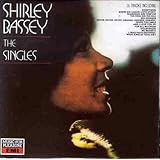
It’s fitting that a singer would choose a Shirley Bassey album as one of their top 5; this is a great collection of songs which includes 2 Bond themes (“Diamonds are Forever” and “Goldfinger”), 2 Beatles covers (“The Fool on the Hill” and “Something”) and the wonderful “Big Spender”. And that’s less than a third of the album. This is a great example of an artist with a fabulous voice working with strong songs and great arrangements to produce truly memorable performances.
Many thanks to Skye Edwards for sharing her all-time favourites with us; tomorrow we have the selection of Steve Jenner, drive-time presenter on Ashbourne Radio in Derbyshire and a man with an ear for a great tune.



